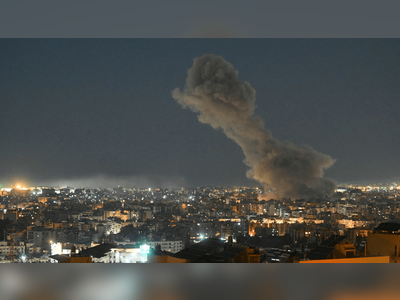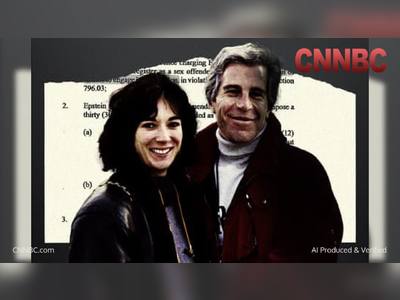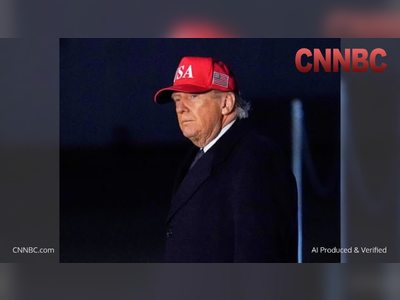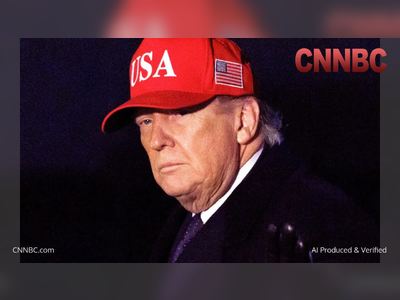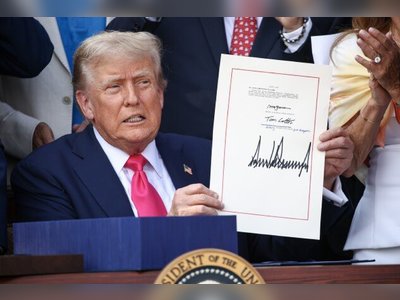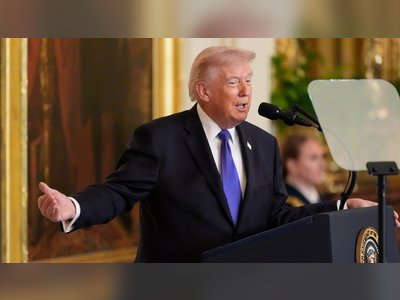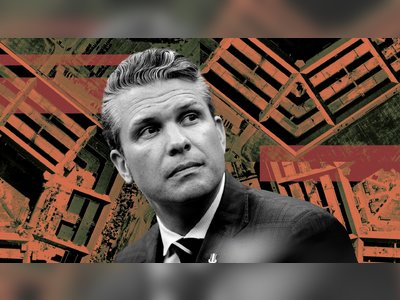Justin Trudeau to Step Down as Canada's Prime Minister Amid Political Turmoil
Trudeau's resignation opens a competitive race for leadership in the ruling Liberal Party amid declining popularity and looming economic challenges.
In a dramatic development for Canadian politics, Prime Minister Justin Trudeau announced his decision to resign after nearly a decade in power, once a new leader of the Liberal Party is selected.
Trudeau's decision, driven by internal party strife and dwindling public support, marks a significant turning point ahead of an election that must take place by October, according to federal law.
Speaking from Rideau Cottage, Trudeau emphasized that Canadians deserve a clear choice in the next election and cited party infighting as a barrier to confronting political rivals.
He assured he would remain in office as a caretaker until the Liberal Party selects a new leader through a comprehensive, nationwide process.
Trudeau, who took office in November 2015, has faced increasing pressure amid plummeting polls for the Liberals, now at only 16% support.
The Conservative Party, under the leadership of Pierre Poilievre, is poised to make significant electoral gains given current trends.
Trudeau's legacy includes navigating Canada's response to global issues alongside personal scandals that have marred his tenure.
Tensions between Canada and the upcoming U.S. administration under President-elect Donald Trump have compounded Trudeau's challenges, with fears of impending tariffs threatening Canada's economy.
Trump's social media commentary has further inflamed these concerns, ridiculing Trudeau and questioning Canada's sovereignty.
Reactions from political opponents were swift, with Poilievre accusing the Liberals of attempting to mislead Canadians by simply changing leaders, and New Democratic Party leader Jagmeet Singh asserting that the Liberals, under any leader, are undeserving of continued governance.
Trudeau's impending departure triggers a heated race for leadership within the Liberal Party.
Potential candidates, such as former finance minister Chrystia Freeland, who herself resigned amid tensions with Trudeau, and former Bank of Canada governor Mark Carney, are both expected to be key contenders.
This political reshuffle comes at a precarious time for Canada as it grapples with economic challenges, including high inflation and a housing crisis, all of which have contributed to public dissatisfaction.
The Liberal Party must quickly reorganize and regroup ahead of a spring election that is widely anticipated.
With Canadian politics at a crucial juncture, Trudeau's decision to step down could set the stage for a fundamental shift in the nation's political landscape as parties prepare for the next election.
Trudeau's decision, driven by internal party strife and dwindling public support, marks a significant turning point ahead of an election that must take place by October, according to federal law.
Speaking from Rideau Cottage, Trudeau emphasized that Canadians deserve a clear choice in the next election and cited party infighting as a barrier to confronting political rivals.
He assured he would remain in office as a caretaker until the Liberal Party selects a new leader through a comprehensive, nationwide process.
Trudeau, who took office in November 2015, has faced increasing pressure amid plummeting polls for the Liberals, now at only 16% support.
The Conservative Party, under the leadership of Pierre Poilievre, is poised to make significant electoral gains given current trends.
Trudeau's legacy includes navigating Canada's response to global issues alongside personal scandals that have marred his tenure.
Tensions between Canada and the upcoming U.S. administration under President-elect Donald Trump have compounded Trudeau's challenges, with fears of impending tariffs threatening Canada's economy.
Trump's social media commentary has further inflamed these concerns, ridiculing Trudeau and questioning Canada's sovereignty.
Reactions from political opponents were swift, with Poilievre accusing the Liberals of attempting to mislead Canadians by simply changing leaders, and New Democratic Party leader Jagmeet Singh asserting that the Liberals, under any leader, are undeserving of continued governance.
Trudeau's impending departure triggers a heated race for leadership within the Liberal Party.
Potential candidates, such as former finance minister Chrystia Freeland, who herself resigned amid tensions with Trudeau, and former Bank of Canada governor Mark Carney, are both expected to be key contenders.
This political reshuffle comes at a precarious time for Canada as it grapples with economic challenges, including high inflation and a housing crisis, all of which have contributed to public dissatisfaction.
The Liberal Party must quickly reorganize and regroup ahead of a spring election that is widely anticipated.
With Canadian politics at a crucial juncture, Trudeau's decision to step down could set the stage for a fundamental shift in the nation's political landscape as parties prepare for the next election.

